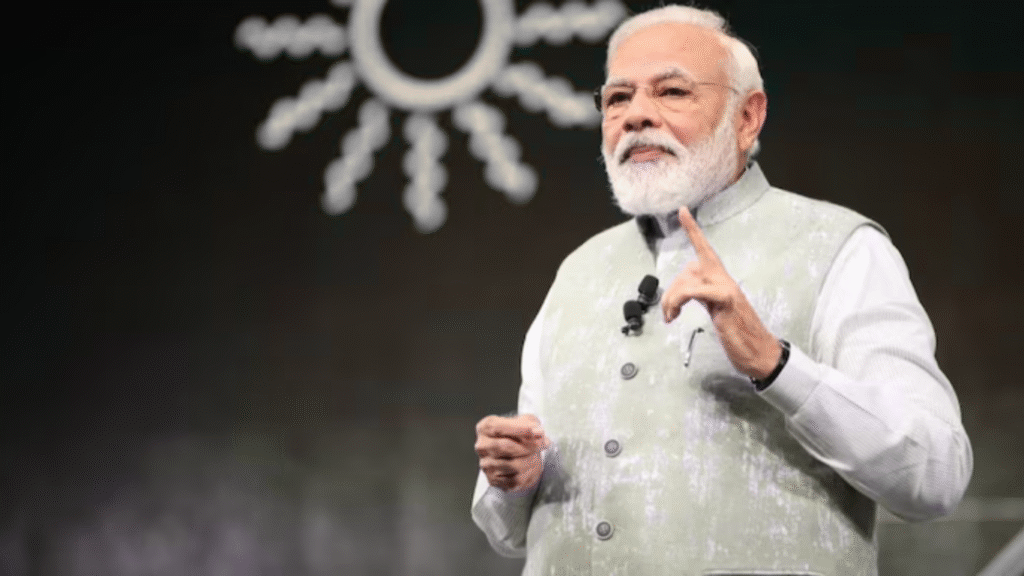India’s bold military move, Operation Sindoor, launched on May 7, 2025, aimed to strike terror camps in Pakistan after a horrific attack in Pahalgam killed 26 civilians. While the operation was a domestic win, showing India’s firm stand against terrorism, it sparked a surprising global backlash. Nations that India counted as allies stayed quiet or called for restraint, leaving India feeling alone on the world stage. Even the G-7 summit, set for June 2025 in Canada, seems to have snubbed India, with no formal invitation extended. This article explores why Operation Sindoor, meant to showcase India’s strength, led to diplomatic isolation, how world leaders reacted, and what this means for India’s global role. From mixed signals to outright criticism, the fallout reveals a tough road ahead for India’s diplomacy.
The Roots of Operation Sindoor
Operation Sindoor was India’s response to a brutal terrorist attack on April 22, 2025, in Pahalgam, Jammu and Kashmir. The attack, blamed on Pakistan-based group Jaish-e-Mohammed, killed 26 people, including tourists. India launched precision strikes on nine terror camps in Pakistan and Pakistan-occupied Kashmir, aiming to destroy terrorist infrastructure without harming civilians. Domestically, the operation united political parties and boosted public support for Prime Minister Narendra Modi’s tough stance. However, the international community saw it differently, viewing the strikes as risky in a region with two nuclear-armed nations. This set the stage for India’s diplomatic challenges, as global powers prioritized stability over supporting India’s actions.
The Pahalgam Attack
On April 22, 2025, terrorists struck Pahalgam, a peaceful tourist spot, killing 26 civilians, including one Nepali. India’s intelligence linked the attack to Jaish-e-Mohammed, operating from Pakistan. The brutality—many victims were shot at close range—shocked the nation, pushing the government to act fast. Operation Sindoor was planned as a targeted response to show India’s zero-tolerance for terrorism, but it also raised fears of escalation abroad.
India’s Military Response
On May 7, 2025, India’s Army, Navy, and Air Force carried out Operation Sindoor, hitting terror hubs in Bahawalpur and Muridke. Using drones and missiles, the strikes avoided civilian areas, killing over 100 terrorists, per India’s claims. Pakistan retaliated with shelling, leading to 10 deaths in Indian-administered Kashmir. The operation showed India’s military strength but sparked global worries about a wider conflict.
Global Reactions to Operation Sindoor
The world’s response to Operation Sindoor was cautious, with most nations urging restraint rather than backing India. Major powers like the U.S., China, and Russia expressed concern over escalation, emphasizing dialogue. While Israel supported India’s right to self-defense, others, including the U.K. and UAE, called for calm. The UN pushed for peace, and even allies like Germany stayed neutral. This lukewarm reaction left India feeling unsupported, as nations prioritized avoiding a nuclear standoff over endorsing India’s anti-terror stance. The global media highlighted the risks, not India’s reasoning, amplifying the isolation.
United States’ Response
U.S. President Donald Trump called the situation a “shame” and hoped it would end quickly, while Secretary of State Marco Rubio pushed for de-escalation. The U.S. engaged both India and Pakistan but didn’t endorse India’s strikes, focusing on preventing war. Some posts on X even claimed the U.S. sent aid to Pakistan, though unverified, adding to India’s sense of betrayal by a key partner.
China and Russia’s Stance
China, a close ally of Pakistan, expressed “regret” over India’s actions and urged calm. Russia, despite ties with India, condemned terrorism but called for restraint, wary of upsetting its growing trade with Pakistan. Both nations avoided supporting India, focusing on stability. Reports of Russia sending $2 billion to Pakistan, though unconfirmed, fueled India’s frustration with its long-time ally.
Middle East and Islamic Nations
Middle Eastern countries like the UAE, Qatar, and Egypt called for dialogue and restraint, avoiding any praise for India’s operation. The UAE’s Sheikh Abdullah bin Zayed emphasized regional peace, while Qatar pushed for open communication. Turkey backed Pakistan’s call for an investigation, and Saudi Arabia stayed neutral. This hesitance from Islamic nations, where India sought support, hurt its diplomatic push.
India’s Diplomatic Push and Its Failure
India sent seven all-party delegations to 33 countries, including UN Security Council members, to explain Operation Sindoor and rally support against Pakistan’s role in terrorism. Led by MPs like Shashi Tharoor and Supriya Sule, the delegations visited the U.S., UAE, Japan, and others. However, the effort fell flat. No major head of state met them, and global parliaments largely ignored their message. Posts on X claim no country backed India, though some, like Israel and Germany, offered limited support. This lack of traction showed India’s struggle to shape the global narrative.
The Delegation Strategy
India’s delegations, with 59 leaders from parties like BJP, Congress, and DMK, aimed to show unity and highlight Pakistan’s terror links. They carried evidence, like intercepted communications, to prove India’s case. Visits to countries like South Africa and Qatar targeted influential regions, but the lack of high-level meetings signaled global reluctance to take sides.
Limited Support from Allies
Israel was a rare supporter, with Ambassador Reuven Azar calling Operation Sindoor a legitimate response to terrorism. Germany’s Foreign Minister Johann Wadephul also backed India’s right to self-defense. However, these were exceptions. Most allies, like Japan and France, stayed neutral, focusing on de-escalation rather than endorsing India’s actions, leaving the delegations disappointed.
The G-7 Summit Snub
India’s absence from the G-7 summit in Canada, set for June 2025, stung deeply. Since 2019, Prime Minister Modi had attended every G-7 summit as a guest, signaling India’s rising global role. This year, Canada invited Brazil and South Africa but not India, citing their roles in COP and G20. Tensions over Canada’s claims of Indian involvement in the 2023 killing of Hardeep Singh Nijjar likely played a part. The snub, widely discussed in Indian media, was called a “diplomatic failure” by critics like Congress’s Jairam Ramesh, highlighting India’s isolation.
Canada’s Role
Canada’s decision not to invite Modi was tied to strained ties after the Nijjar case. Canadian PM Mark Carney stayed silent on the issue, and the lack of clarity fueled speculation. India’s hope for better relations under Carney, compared to Justin Trudeau, faded, as Canada prioritized other nations for the G-7, sidelining India.
Political Fallout in India
The G-7 exclusion sparked domestic criticism. Congress leaders called it a sign of Modi’s diplomatic missteps, arguing India’s aggressive stance post-Sindoor alienated allies. Posts on X echoed this, claiming the snub showed global rejection of India’s narrative. Modi’s government countered that India’s stance on terrorism remains strong, but the absence hurt its image.
Pakistan’s Diplomatic Counteroffensive
Pakistan launched its own diplomatic push, sending two delegations to five countries to counter India’s narrative. Led by PM Shehbaz Sharif, they sought to portray Pakistan as a victim of Indian aggression. While Pakistan gained little formal support, unverified posts on X claimed deals with Russia, Turkey, and Iran, suggesting some success. Pakistan’s UN Security Council seat until 2026 gave it a platform to push for investigations, contrasting with India’s limited global backing. This narrative battle left India struggling to isolate Pakistan diplomatically.
Pakistan’s Narrative
Pakistan’s delegations met think tanks and diaspora groups, claiming India’s strikes were an “act of war.” They called for international probes into the Pahalgam attack, denying links to Jaish-e-Mohammed. Though most nations stayed neutral, Pakistan’s messaging resonated with allies like China and Turkey, weakening India’s position.
Limited Global Backing
Pakistan’s efforts didn’t win strong endorsements, but countries like China and Malaysia supported its call for dialogue. Unconfirmed reports of $2.6 billion from Russia and MoUs with Iran and Kuwait boosted Pakistan’s confidence. India’s failure to counter this narrative left it diplomatically outmaneuvered.
Why India Faced Isolation
India’s isolation stemmed from global fears of escalation between nuclear powers. Nations saw Operation Sindoor as risky, even if aimed at terrorists. India’s history of avoiding mediation in bilateral issues, like Kashmir, clashed with its push for global support, confusing allies. Domestic policies, like farmers and illegal immigrants treatment, also drew scrutiny, especially after Canada’s Nijjar allegations. The G-7 snub and muted responses from allies like the U.S. and Russia showed India’s growing pains as a global power. Its aggressive stance, while popular at home, didn’t translate abroad.
Fear of Escalation
The world’s focus on avoiding war between India and Pakistan, both nuclear-armed, overshadowed India’s anti-terror argument. Nations like the U.K. and Qatar prioritized stability, urging dialogue over supporting India’s strikes. This cautious approach left India without the backing it expected.
Domestic Policies Under Scrutiny
India’s domestic issues, like allegations of targeting Sikhs abroad and few other policies, hurt its image. Canada’s claims about the Nijjar killing fueled distrust, especially in Western nations. Critics on X pointed to India’s “Hindutva ideology” as a reason for the G-7 snub, which is not completely true.
Lessons for India’s Diplomacy
The fallout from Operation Sindoor shows India must rethink its approach. Building stronger alliances, especially in the Global South, could counterbalance Western hesitance. Clearer communication about its actions, avoiding aggressive rhetoric, might win more support. India should also address domestic criticisms to boost its global image. Engaging in multilateral forums, like the UN, without compromising its bilateral stance on Kashmir, could help. The isolation highlights the need for a balanced strategy that aligns domestic strength with global trust.
Building Stronger Alliances
India should deepen ties with nations like Japan and South Africa, which showed partial support. Engaging ASEAN and African Union countries, as planned in the delegations, can expand its influence. Consistent diplomacy, not just post-crisis pushes, will build trust.
Clearer Messaging
India’s delegations carried strong evidence, but the messaging was too aggressive for some. Explaining Operation Sindoor as a limited, anti-terror move, not a prelude to war, could have swayed neutral nations. Softer rhetoric and more media engagement might help next time.
The Path Forward for India
India’s isolation after Operation Sindoor isn’t permanent but demands action. Rebuilding trust with allies like the U.S. and Canada, possibly through trade talks, is key. Joining global forums on terrorism, while keeping Kashmir bilateral, can show India’s commitment to peace. At home, addressing few concerns could ease international criticism. Modi’s government must balance its strong anti-terror stance with diplomacy that wins friends, not just respect. The G-7 snub is a setback, but India’s economic rise and military power keep it relevant.
Restoring Ties with Canada
Mending ties with Canada, strained since the Nijjar case, is crucial. India should offer cooperation on investigations while demanding security for its diplomats. Trade talks, as Carney suggested, could reset relations, potentially earning India a future G-7 invite.
Strengthening Global Presence
India’s $3.9 trillion economy and tech advancements give it leverage. Regular summits with ASEAN or BRICS can counter Western hesitance. By leading on issues like climate or tech, India can regain diplomatic ground, showing it’s more than a regional power.
The Bigger Picture
Operation Sindoor showed India’s resolve but exposed its diplomatic limits. The world’s call for restraint, Pakistan’s counter-narrative, and the G-7 snub reveal a gap between India’s ambitions and global perceptions. To avoid future isolation, India must align its actions with a narrative that resonates globally, not just at home. By building bridges, clarifying its stance, and addressing domestic critiques, India can turn this setback into a chance to grow as a global leader. The road is tough, but India’s potential remains strong.
Global Perceptions vs. Domestic Strength
India’s unity post-Sindoor, with leaders from opposition parties praising the military, won domestic support. But globally, the operation was seen as risky, not heroic. Bridging this gap means crafting a narrative that highlights India’s restraint and anti-terror goals.
A Chance for Growth
The isolation is a wake-up call. India can use its economic and military clout to lead on global issues, like counterterrorism or tech innovation. By learning from Sindoor’s fallout, India can emerge stronger, balancing bold actions with smart diplomacy to regain its global standing.



